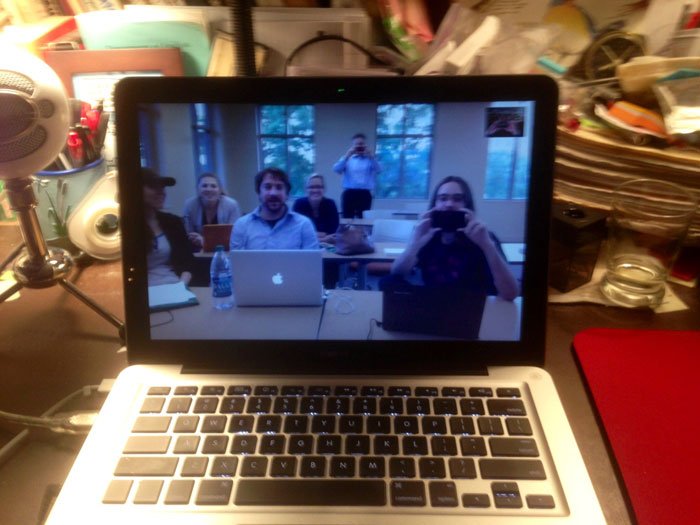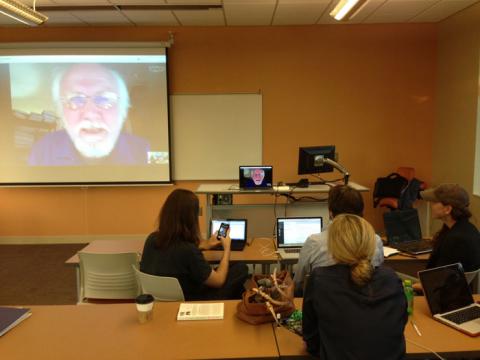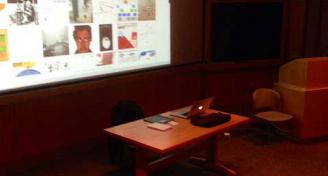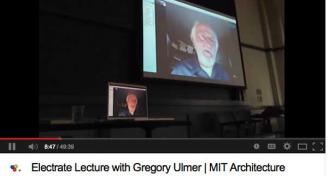
Skype Clemson
Jan Holmevik's seminar at Clemson this semester correlated with Ulmer's seminar at UF on Ubimage (heuretics of ubiquitous computing). Tuesday evening I dropped in on Jan's class via Skype, to answer some questions about Avatar Emergency, especially concerning Konsult (the writing of the disaster). The students prepared PechaKucha videos on the chapter, exploring some implications of the Cabot-Koppers relay treated in the Counsel chapter of AE. One of the videos noted that the term "egent" used to name field agents of the EmerAgency, draws resonance from the Latin verb "egeo," of which "egent" is the third person plural present indicative, meaning "they lack" ("egeo" means "to want, need, lack, be without"). The student assumed I was aware of this meaning in choosing the term, which is not the case. This assumption was plausible in the context of choral word semantics and much else that goes on in AE, such ast the RAT bridge (Laclau via Freud), foreground play with the syllable r-a-t (rat, tar, art, rta), beginning with "der Rat" meaning "counsel" in German. "Egent" was generated in more conventional or superficial style from "agent," referencing both human (subjective) agency, and consulting firm "agents," with the "e" marking passage into "electracy" and its associated mutations of identity experience. It is the luck of conduction that the most intense theorization of these changes in subject (identity dimension of the apparatus) are found in Psychoanalysis in general, and Jacques Lacan in particular, with Lacan describing his version as a "logic of lack." There is much more to be said about this logic, but for now the point is that language knows more than we do, which recommends the Bachelor Machine of conduction (the fourth inference supported specifically within electracy, invented explicitly in avant-garde arts experiments).






